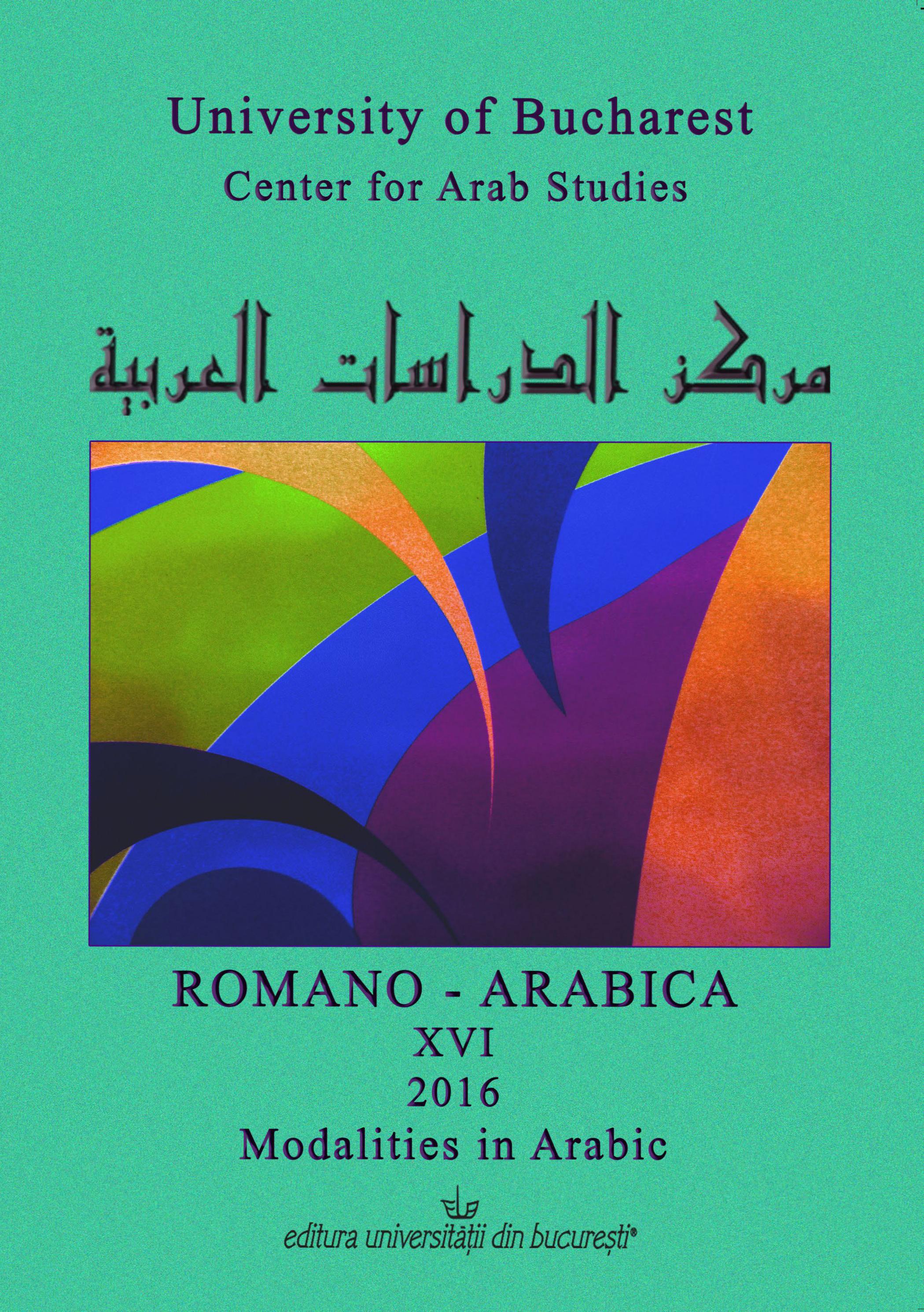AGENT AND SPEAKER-ORIENTED MODALITY IN THE ARABIC DIALECT OF BENGHAZI (LIBYA)
AGENT AND SPEAKER-ORIENTED MODALITY IN THE ARABIC DIALECT OF BENGHAZI (LIBYA)
Author(s): Luca D’AnnaSubject(s): Language studies, Theoretical Linguistics, Language acquisition
Published by: Editura Universităţii din Bucureşti
Keywords: dialectology; linguistics; Libyan Arabic; Benghazi; modality; deontic; agent-oriented;
Summary/Abstract: The present work analyses the category of agent and speaker-oriented modality in the Arabic dialect of Benghazi (Libya), a variety that was until recent years dramatically understudied, despite its enormous interest. The denominations agent-oriented and speaker-oriented modality have been borrowed by Bybee, Perkins & Pagliuca (1994) and Bybee & Fleischman (1995) and represent an evolution of the categories of deontic and dynamic modality first introduced by Palmer (2001, first published in 1986). The categories under analysis are those of obligation, necessity, ability, root possibility, permission, desire, optative and hortative. Paths of evolutions and intersections between different classes are outlined whenever possible (e.g. desire and necessity, permissive and causative) and the work aims at describing the system of modals in the dialect of Benghazi within the wider context of Libyan and Maghrebi varieties.
Journal: Romano-Arabica
- Issue Year: XVI/2016
- Issue No: 16
- Page Range: 25-43
- Page Count: 19
- Language: English

